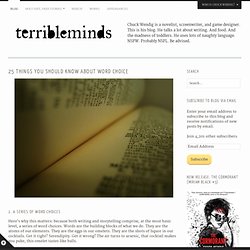

Shakespeare Insult Kit. Shakespeare Insult Kit Since 1996, the origin of this kit was listed as anonymous.

It came to me on a piece of paper in the 90's with no attribution, and I thought it would make a cool web page. Though I searched for the origin, I could never find it. In 2014, Lara M informed found the originating author. It appears to be an English teacher at Center Grove High School in Greenwood Indiana named Jerry Maguire. Combine one word from each of the three columns below, prefaced with "Thou": My additions: cullionly whoreson knave fusty malmsey-nosed blind-worm caluminous rampallian popinjay wimpled lily-livered scullian burly-boned scurvy-valiant jolt-head misbegotten brazen-faced malcontent odiferous unwash'd devil-monk poisonous bunch-back'd toad fishified leaden-footed rascal Wart-necked muddy-mettled Basket-Cockle pigeon-liver'd scale-sided Back to the insulter.
Chris Seidel. - StumbleUpon. Putting the 'Prod' in Productivity. Written? Kitten! 36 Writing Essays by Chuck Palahniuk. 1: Establishing Your Authority Chuck teaches two principal methods for building a narrative voice your readers will believe in.

Discover the Heart Method and the Head Method and how to employ each to greatest effect. 2: Developing a Theme At the core of Minimalism is focusing any piece of writing to support one or two major themes. Learn harvesting, listing, and other methods, after a fun excursion into the spooky side of Chuck's childhood. 3: Using “On-The-Body” Physical Sensation Great writing must reach both the mind and the heart of your reader, but to effectively suspend reality in favor of the fictional world, you must communicate on a physical level, as well. 4: Submerging the “I” First-person narration, for all its immediacy and power, becomes a liability if your reader can't identify with your narrator. 5: Nuts and Bolts: Hiding a Gun 6: Nuts and Bolts: “Thought” Verbs You've always heard the maxim, "Show, don't tell...
" but almost no writing teacher ever explains... 25 Things You Should Know About Word Choice. 1.

A Series Of Word Choices Here’s why this matters: because both writing and storytelling comprise, at the most basic level, a series of word choices. Words are the building blocks of what we do. They are the atoms of our elements. They are the eggs in our omelets. 2. Words are like LEGO bricks: the more we add, the more we define the reality of our playset. 3. You know that game — “Oh, you’re cold, colder, colder — oh! 4. Think of it like a different game, perhaps: you’re trying to say as much as possible with as few words as you can muster. 5. Finding the perfect word is as likely as finding a downy-soft unicorn with a pearlescent horn riding a skateboard made from the bones of your many enemies. 6.
For every right word, you have an infinity of wrong ones. 7. You might use a word that either oversteps or fails to meet the idea you hope to present. 8. Remember how I said earlier that words are like LEGO, blah blah blah help define reality yadda yadda poop noise? Exercises for Fiction Writers - Page 2 - StumbleUpon. Wordnik. Oneword.com.